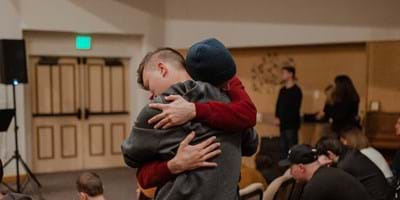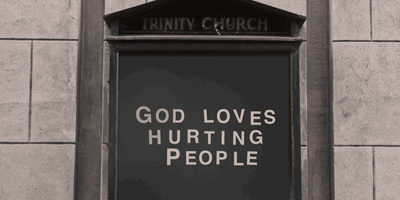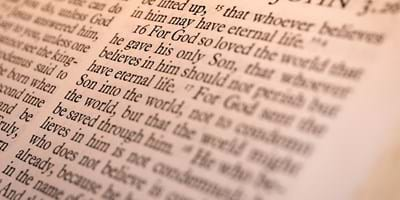“I have loved you,” says the Lord. The evidence of this love could hardly be greater.
God had chosen Abraham out of the idolatrous city of Ur, promised to make his family grow to become a nation, and his descendants to be more than the stars of the sky. This special people were preserved though famine in Egypt, saved from slavery, and delivered from annihilation at the hand of Pharaoh’s armies by the splitting of the Red Sea in two. God drew up what looks very like a marriage covenant with them and promised to lead them to a land “flowing with milk and honey” (poetic language for a land with abundant resources).
As they journeyed through the wilderness, bread appeared on the ground morning by morning and water flowed from the rock for forty years, while their shoe leather never wore out. God commissioned a beautiful tent, described in exquisite detail, so that he could stay right beside them, and guided them every step of the way through a column of cloud by day and fire by night. He healed their sicknesses, guided their leaders, defeated their enemies and created stable government. He met with them, spoke to them, lived with them, protected them, blessed them and forgave them countless times.
Quite rightly, the prophet Malachi says, “‘I have loved you,’ says the Lord”. But the response of the ungrateful nation beggars belief. Like a petulant teenager raging against their long-suffering parent, they ask: “in what way have You loved us?”
How blinded they were by their own self-righteousness and self-reliance! How ungrateful their hearts and how dim their appreciation for their God. God had preserved and protected, filled and forgiven, corrected and cared for the nation of Israel for hundreds of years. Short memories indeed.
But what about us? God says to each of us, “I have loved you!” Is this another case of unrequited and unappreciated love? Do you respond, “You say you love me . . . Prove it?”
Perhaps you wonder whether God really does love you. Perhaps the scars of a parent’s divorce or your own, the pain of bereavement or of a struggle with sickness make you wonder how an all-powerful God could allow you to go through these experiences. It’s easy in the face of suffering to become bitter rather than better, but there are times when unpleasant experiences can result in a greater good and unexpected blessing. God is always painting on a bigger canvas than we can see. For Christians, Romans 8:28 teaches us, in the context of suffering, that “we know that all things work together for good to those who love God.”
But perhaps you are not yet a Christian, so how do you know that He loves you? You could do worse than to “count your blessings”. Air in your lungs and a heart carrying life-giving blood to your organs. A sound mind and the use of all four limbs, perhaps. Rain to water the fields and flowers to cheer your soul. Food on the table, a roof over your head and a bed to sleep on. Family or friends, perhaps both. The list could go on and they are all good gifts from a loving God whose mercies are new every morning. We do well to thank God for each of His blessings but these are not the greatest demonstration of God’s love to us.
In Romans chapter 5 verse 8 we read: “But God demonstrates His own love toward us, in that while we were still sinners, Christ died for us.”
The greatest act of love ever demonstrated was God’s love to us as sinners in that He sent his Son Jesus to die as a substitute and sacrifice on our behalf, so that we can be forgiven through faith in Jesus Christ. The Lord Jesus Christ left heaven and came into this world via a virgin’s womb. He lived a simple but hard life. His mother Mary, likely bereaved of her husband Joseph while still young, lived with the suspicion and shame that came through being pregnant with her first son before marriage. You can imagine the names that He was called at school. He was brought up in a despised village called Nazareth. His brothers thought that He was out of his mind for claiming to be the Jewish Messiah, and He was even hated by the religious establishment.
At thirty-three years of age He was stripped and whipped, beaten, spat upon, mocked, insulted and nailed to a Roman cross to die between two criminals for crimes that He did not commit. But it was not the nails that held Jesus to the cross. Rather, it was determined and fierce love for you and for me that held Him to that cruel implement of execution. It was there that He suffered as a substitute, taking the punishment that you and I deserved from a just and holy God, making a way for God to remain just while being free to forgive those who had broken His law through their lives of sin. You may ask the question, as the Israelites did: “In what way have you loved me?” Today He points you to the greatest demonstration of that love ever seen on the bloodied cross of Calvary. That’s the way in which He has loved you. Please make sure that it is not an unappreciated or unrequited love. Respond to the overtures of God’s love, thank the Lord Jesus, the risen Saviour, for loving you enough to die on account of your sins, and receive the forgiveness that only He can offer today.






























